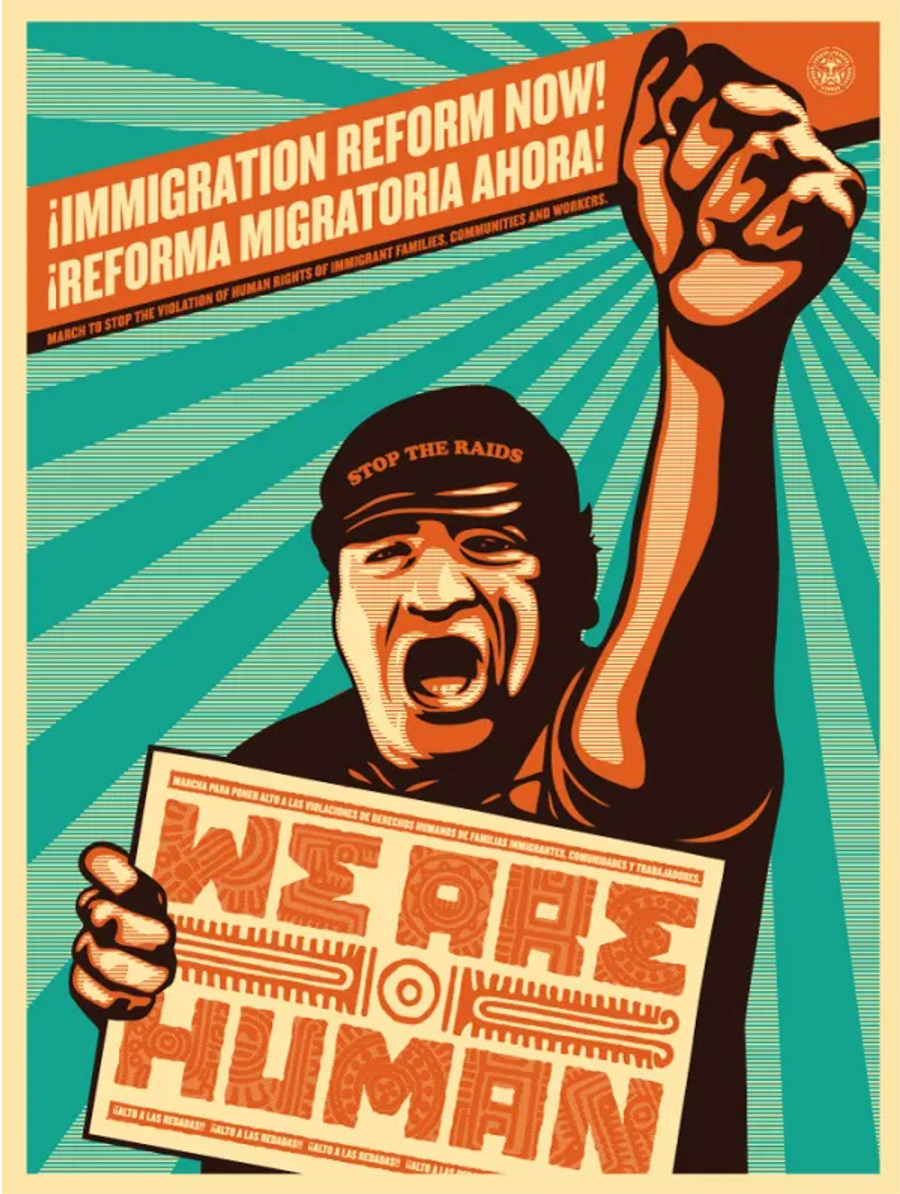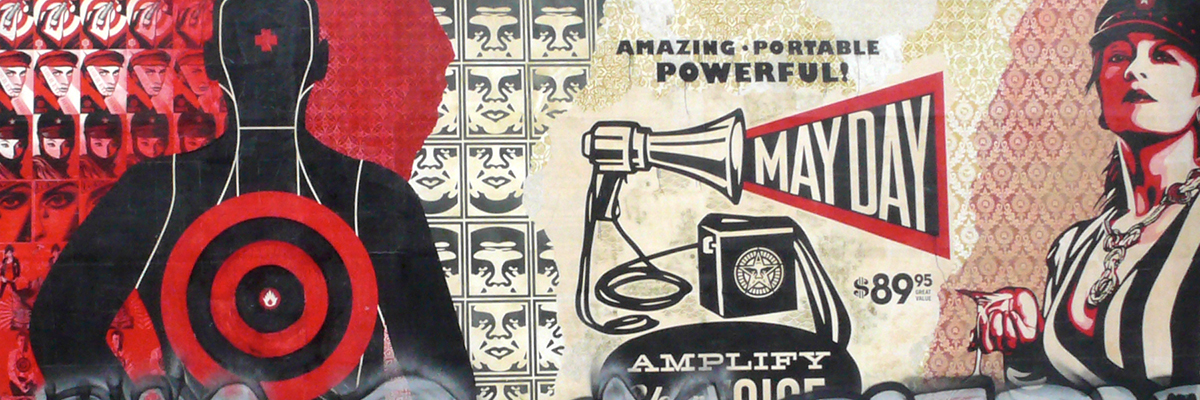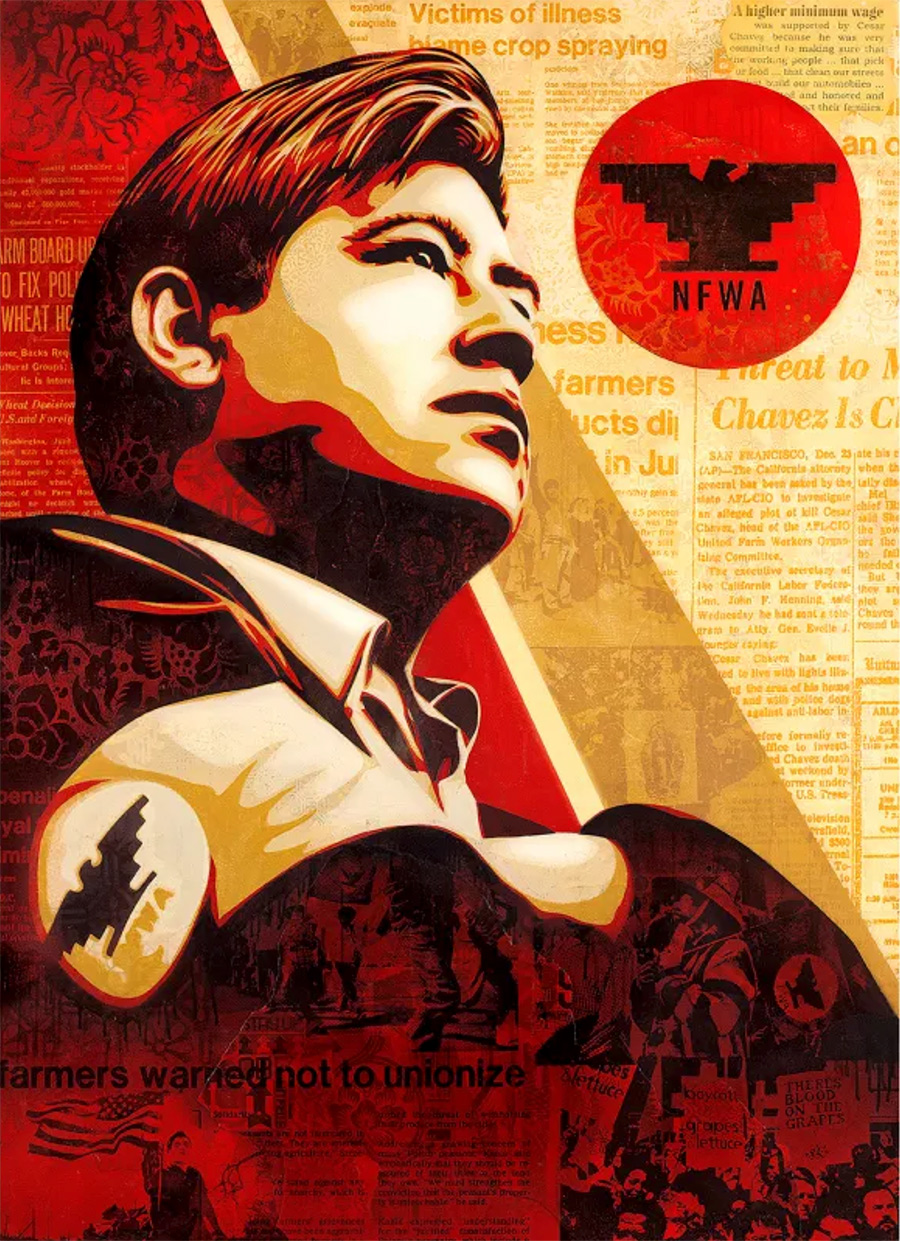I’m an immigrant rights activist because I believe in the promise of opportunity this country was founded on.”
Shepard Fairey
“Immigrants pay more taxes than they consume in benefits,” writes Alex Nowrasteh on his Substack. He’s one of the authors of a brand new 242-page study published by the conservative Cato Institute, called “The Fiscal Impact of Immigration in the United States”
Cato knows that immigrants (documented and undocumented) greatly benefit the country economically because they base their exhaustive study on data collected by the US Government, which also annually makes meticulous studies of the benefits of having immigrant labor to keep an economy alive and growing. But it is not only think tanks and governments who keep this meticulously detailed data proving the net financial benefits of keeping workers employed who are not granted equal pay, rights, or protections; so do all the banks and corporations across the globe.
Imagine how you would benefit if you could hire workers in your business who live in fear of getting arrested or being separated from family members. You could pay them lower wages and offer no sick days, vacation days, pensions, insurance, medical care, or even safe working conditions. These business owners know that these lowered costs and repressed wages make them more significant profit. It has always been true and, for many, a temptation too great to resist.
So why don’t we see this on the news or hear it from the political class? We rarely, if ever, do.
Today on International Workers Day, celebrated in much of the world, we’ll be regaled instead by stories of frightful “illegals” at the border and the Biden administration’s plans to lift Title 42 restrictions, and how we’ll soon be flooded by arriving Mexicans, Cubans, Haitians, Nicaraguans and Venezuelans. If the past is prologue, and it usually is, the US and its captains of industry will continue to profit from the labor of new arrivals as it has for centuries, despite any heated rhetoric from your TV news host of choice.

Offset Print
24 x 35 inches
Edition of Open
Street artist and fine artist Shepard Fairey has kept our collective eye on socio-political matters through his posters, advocacy, and donations of work and time to causes of the worker over the last three decades or so, and today we feature some of his work to celebrate May 1st. He also offers a few words to BSA readers as we think about the contributions of immigrants to the economic and cultural wealth of the US and how all workers deserve fundamental basic rights no matter who they are.
I’m an immigrant rights activist because I believe in the promise of opportunity this country was founded on. The U.S. is a country built on immigration by people leaving their homes to build a better life. That concept should not be something only open to white Europeans from decades and centuries past, but for all those seeking work and asylum. Only a short while ago whites were the immigrants to this land seeking a better life, so let’s not allow short memory and racism to diminish our compassion for those who want to work hard for a good life in the U.S. now!”
Shepard Fairey
https://en.wikipedia.org/wiki/United_Farm_Workers
Other Articles You May Like from BSA:
This week BSA is in Detroit with our hosts 1XRun for the Murals in the Market festival they are hosting with 50+ artists from various countries and disciplines and creative trajectories. In a city t...
A new vinyl installation in Manhattan’s East Village uses the visual language of a mural and appeals to a popular sentiment of New Yorkers toward the war in the Ukraine. Attached to a long low wall i...
Welcome to BSA Images of the Week! Remember the heyday of street art lists? People are still compiling them. From top 10 cities in the US for Street Art, to tourist-tilted lists of Street Art ...
Remember when Charles Wallace couldn't taste the food offered by the man with the red eyes because he had completely shut his mind to him in Madeleine L'Engle’s A Wrinkle in Time? The food was made o...
We have brought you many images and artists from here since The Djerbahood Project began a decade or so ago – with the French Galerie Itinerrance organizers inviting street artists of various styles ...
 BROOKLYN STREET ART LOVES YOU MORE EVERY DAY
BROOKLYN STREET ART LOVES YOU MORE EVERY DAY











